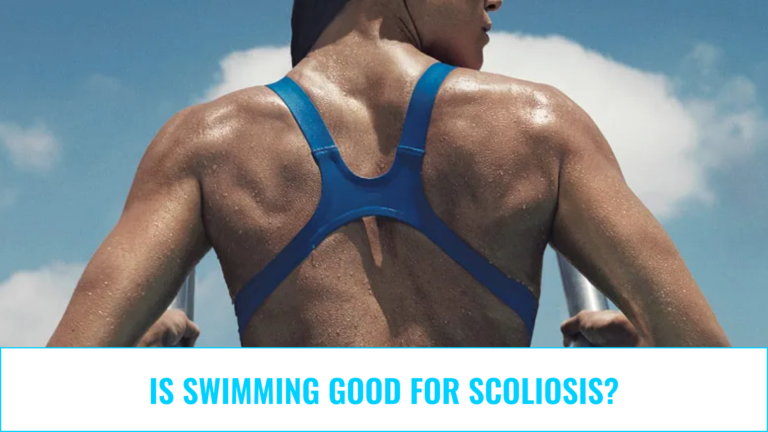10 Critical Disadvantages of Swimming for Your Health
Swimming has been accepted as one of the most beneficial sports today, as it works for all muscle groups and is the most popular. Although swimming is an advanced stage of being able to stay on the water to which every living thing is naturally known and inclined, most people panic not because they can’t swim, but because they are afraid of drowning.
However, when the buoyancy of the water is combined with the natural movements of the living thing in the water, the act of swimming takes place spontaneously. Of course, there are some techniques and styles to stay in the water for a longer time without getting tired and moving fast; but basically, the action called swimming is a process that can develop naturally as long as the person leaves himself alone.
Self-confidence is the most essential aspect when learning to swim. Negative emotions such as panic, anxiety, and worry prevent them from floating.
Of course, swimming can also be learned through individual effort. However, since there is also the danger of drowning due to panic, it is more appropriate to learn the act of swimming in pools with a depth not exceeding the length.
Learning to swim is something anyone can do, from childhood to the middle and even advanced age group. Swimming is often recommended by doctors because it works for all muscle groups. Swimming is frequently used in the treatment of patients with bone curvatures such as scoliosis.
Although swimming is seen as a beneficial and entertaining sport for human health, some aspects can harm people in this sport.
Swimming Increases Allergy or Asthma Risk
Swimming does not directly cause allergies or asthma. However, the chlorination of the pool where the swimming action takes place causes asthma or allergies in swimmers to be triggered. Apart from this, although swimming does not cause asthma and allergies on its own, it is among the sports recommended by doctors for children with asthma and allergies.
Sweating After Swimming Increases Fungus Risk
Swimming is a sport that causes the human body to sweat more than necessary. If you go to take a shower in sweat after swimming, then you increase the risk of fungal growth. The most common type of fungus among swimmers is the athlete’s foot.
Skin Irritation Is Common Among Swimmers
Chlorinated swimming pools cause red and teary eyes, dry and itchy skin, and acne among swimmers. If your skin is itchy after swimming, your eyes are burning and your skin is dry, it is because the pool is chlorinated.
Swimming Can Cause Ear Inflammation
Another ailment that is very popular among swimmers is ear disease. It is known by many people as an ear infection. This problem, which is caused by the fact that the water is chlorinated and the ear is in frequent contact with the water, often happens to swimmers.
Swimmer’s Shoulder Discomfort
Although swimming is one of the sports where injuries are the least, it is inevitable to have injuries in these muscle groups because it works for all muscle groups. Swimmer’s Shoulder is one of them. More than 80% of swimmers suffer from this condition.
Swimmer’s shoulder is a condition in which the shoulder muscles are overworked and the tendons are injured during swimming. This is most common in people who try to swim with an incorrect swimming technique.
Swimmer’s Knee Discomfort
Swimmer’s knee discomfort, just like a swimmer’s shoulder, occurs as a result of overworking the knee muscles and joints with the wrong technique.
Infectious Diseases
Depending on the environment or water you swim in, you are more likely to get bacterial infections. If you do not swim in a pool that is frequently cleaned with chemical disinfectants, you will most likely get an infection from that pool.
Dirty or bacterial water can infect your skin, ears, and eyes, and you may have to deal with these infectious diseases for a while. Besides these bacterial infections, fungi and allergies occur as a result of the polluted environment.
Cold Water Can Make You Sick
Swimming in cold water is very beneficial for feeling more vigorous, increasing blood circulation, and giving your body a short-term shock effect. In addition, cold water causes you to burn more calories. But for many people, cold water can do more harm than good. To avoid flu and colds, I recommend not swimming in colder water than necessary.
Dehydration Is The Biggest Problem
The main reason you experience dehydration while swimming in water is that you sweat. While doing a fast-paced sport, you become thirsty because of the energy you already expend, and when sweating is added to this, dehydration may occur. Unfortunately, you don’t feel sweaty while swimming, so you may not think about dehydration.
You should drink water occasionally while swimming and prevent dehydration.
Swimming is Expensive, Which Is a Disadvantage for Your Wallet
Like any sport, swimming requires a certain investment. First, if you are not a seaside resident, you will most likely need to register at a sports facility with a swimming pool. This is a cost in itself. But there is more. There are some tools and equipment you need to buy when starting swimming.
The starting equipment you need to buy before you start swimming:
- Swimming goggles
- Swimsuit
- Towels and bathrobes
- swimming cap
- Toiletries
- Hairbrush
- Flip flops or poolside shoes
However, there are additional costs as well. But since what they are will vary from person to person, you will realize this after you start swimming.
Swimming Disadvantages: What Can You Do?
The disadvantages we are talking about are, of course, the reality of swimming. But you shouldn’t let these disadvantages turn you off from swimming. The best thing you can do would be to find a clean and good sports facility. Swimming in swimming facilities that contain less chlorine will prevent many of the disadvantages mentioned above from appearing.
What should you consider when choosing a swimming pool?
- General cleanliness of the facility
- The pool is less chlorinated.
- Pool size
- To be advanced in terms of security.
Although the disadvantages of swimming can bother people, now you know what you need to do to cope with them. The right swimming techniques and the right gym will eliminate many of these disadvantages. Remember that every sport has its downsides.


